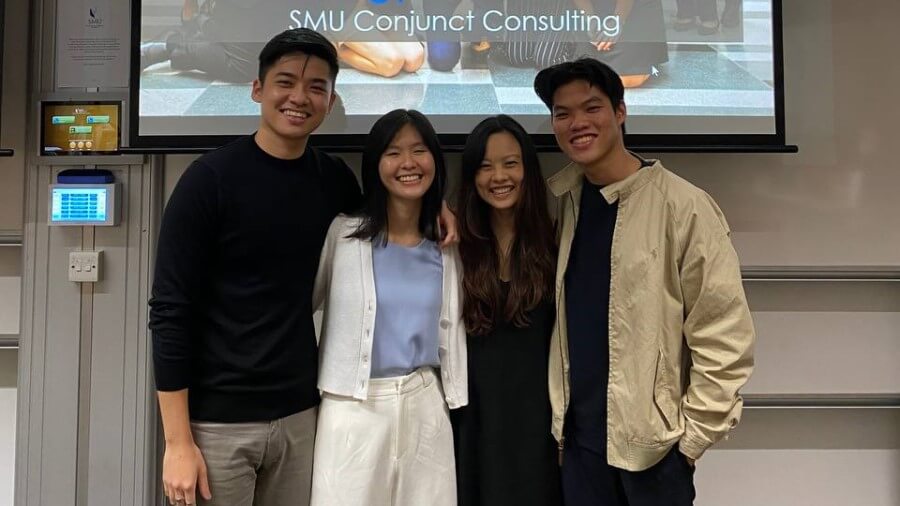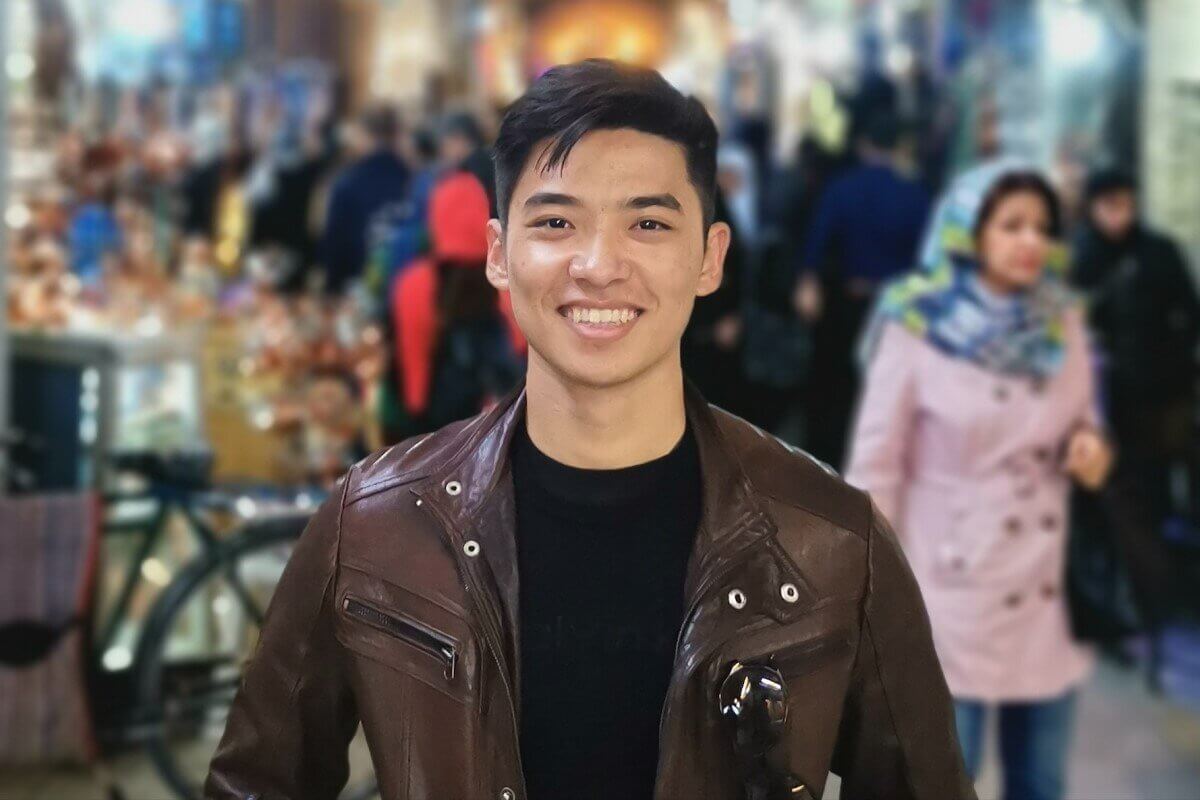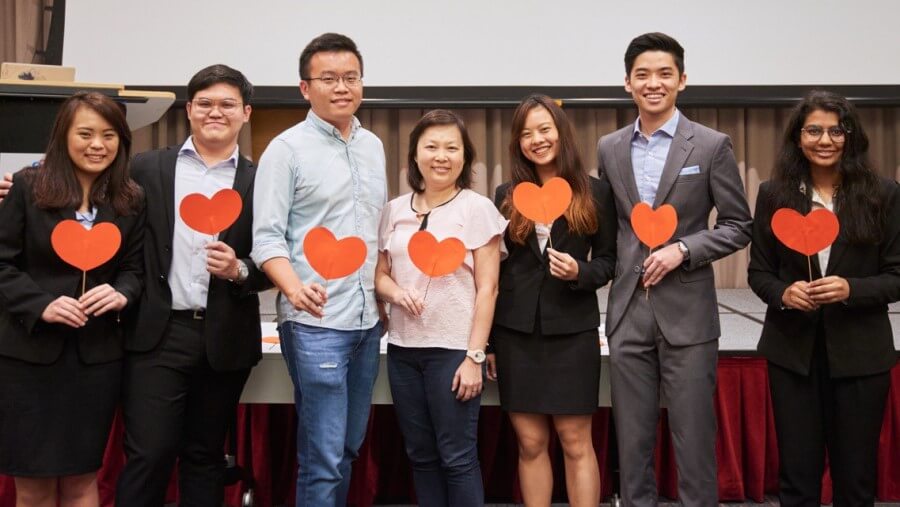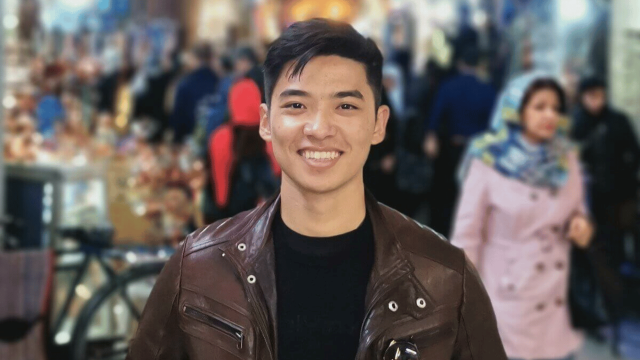Insights from an Insider: Joseph Hwang
Joseph Hwang's experience at SMU is characterised by extensive exposure to global opportunities and the development of leadership skills. Through various internships, including a notable one in China, he gained valuable insights into the blockchain industry. SMU’s curriculum, extracurricular activities, and the support from faculty, have significantly contributed to his personal and professional growth, preparing him for future career challenges.
American poet E.E. Cummings once wrote, “it takes courage to grow up and become who you really are”. If getting through school and completing your tertiary education pose enough of a challenge to you, things are about to get even more complex as you prepare to step into the working world to discover your true purpose. Particularly as every other job post is asking for prior experience or complex skills that go way beyond the subjects that you learnt in university. How are you, as a graduating student, suppose to land your first job?
For a start, SMU’s interactive pedagogy and experiential learning framework prepares students for the realities of a fast-changing economy. Interactive seminar classes encourage you to speak up, to be heard, by example of your peers and seniors; it includes real-work experience programmes like SMU-X, where students work with clients in the industry to solve current problems; and its student activities and clubs (CCAs) are student-led, student-organised and student-run, giving you a “safe” training ground to develop your various skill sets and learn more about your interests.
SMU School of Social Sciences graduate Joseph Hwang heartily endorses the university’s vibrant student life, citing his years with co-curricular club Conjunct Consulting, Southeast Asia’s first social change consultancy, as a catalyst for picking up “key transferrable skills including communicating and liaising between tech groups and users”.
He adds: “Best of all, it was where I learnt to manage projects and create large-scale positive impacts in the social sector, even as a student.”
Hi Joseph, as we all know tertiary education is so much more than just preparing you for a career. Can you please share with us an important soft skill picked up from your time with SMU?
I would say “empathy” as it helps with communication and connecting disparate groups of people, and that includes putting myself in the shoes of my audience. This ability to connect various groups has helped me to do well in my product-management and solutions-architect internships.
Recognising the importance of having empathy for people I work with in such an early stage of my working life has pushed me develop and polish this core skill which I use every day. Employing empathy in the way I communicate has improved my experiences in various aspects of my life.
What is a module that has left a great impact on you?
The SMU-X module called Leadership and Team Building, during which our team worked with IBM’s corporate social responsibility department to develop a coding curriculum for underprivileged youths in Singapore. SMU-X is a programme which allows students to work with real, external clients in the context of a module. I took this module in my very first semester and really appreciated the learnings that came with it.
Our key challenge was to bring sufficient value to the IBM team who already had the expertise and resources. We concluded that our value lies in understanding end-users (the underprivileged youths) and using that understanding to design the user experience – including content, delivery, and style of the curriculum – to optimise engagement.
We conducted extensive research and multiple conversations with groups of youths, which helped put ourselves in their shoes and provided insights that contributed to our final product. For example, instead of having to struggle through learning a coding language in class, we focused on a puzzle-based system that taught coding logic and allowed the users to see immediate results of their effort. We also gamified many aspects of the lesson to sustain their interest.

What are some uniquely SMU experiences you’ve encountered?
Firstly, there is a heavy emphasis on driving your own learning, which results in a lot of freedom to decide what you want your university life to look like. Classes, schedules, and commitments are largely left to each student to plan, based on their goals and interests.
For example, there were semesters where I’ve experimented with less conventional schedules such as taking fewer modules and instead, taking the time to complete part-time internships with companies like Dell Technologies, McKinsey and Zalora; local exchange programmes; and planning my week such that I had whole days to do volunteer work.
This flexible, outcome-based system (as opposed to a more structured, one-size-fits-all model) was a great fit for me. It allowed me to pursue all the different opportunities presented.
Secondly, I find SMU to be much more on-the-ground as it values being practical, up-to-date, and well-connected – alongside academic excellence. This results in many opportunities outside the classroom as I see the university actively funding and supporting SMU-based start-ups, projects and CCAs.
SMU’s encompassing network, whether with a university-wide event or in more localised settings such as CCAs, was something I consistently leveraged to experience new things and dive deeper into my interests!
Can you share more about your involvement in Conjunct Consulting?
I spent a semester as a project leader, during which I led a digitalisation project for a national healthcare agency’s data-management system. I took away so much from this project – ranging from insights into how project and stakeholder management was key to successful implementation, what good leadership looks like, and how effective communication can make everything run more smoothly.
However, one of my biggest takeaways was to learn to structure ambiguous situations. To improve the data-management system of our client, we had used a structured problem-solving approach: For example, when looking at a complex process like data management, we broke it down into parts (collection, storage, management, use, analysis) to ensure we had digestible bites and priorities to work with. I really enjoyed this process, and this skill is something I hope to build on even further.

"SMU has prepared me to achieve all these and more at a rigour and intensity that is difficult to match anywhere else."
Joseph Hwang
SMU School of Social Sciences graduate
Tell us more about your current internship at Boston Consulting Group.
It’s a management consulting company, and I’m a Summer Intern, working on its digital transformation project with a bank. Consulting is something I have always been interested in pursuing due to its strategic, fast-paced and dynamic nature.
My learning at SMU helped in two major ways: I learnt critical thinking, communication, and even seemingly less important but still significant hard skills such as slide making through Conjunct Consulting, various modules, and my internships. I believe the steady exposure to real-life problems and how to tackle them have been instrumental in developing the right skill set needed for my career.
On top of the skills, another important element is the environment that SMU provides. On campus, I am able to find like-minded friends to do projects or modules with, and even prepare for our internships together.
I’m also able to leverage our strong alumni network: For instance I could ask for advice and insights on job roles and get vastly different perspectives. These helped paint a realistic picture of my career options and even motivated me to explore beyond my options.

How has SMU challenged you both personally and academically?
The idea of having almost complete ownership of your work and learning experience in SMU was extremely challenging and exciting for me. Compared to my previous education, I was excited at the opportunity to explore my diverse range of interests further, be it through the curriculum, the project-based assignments, or activities outside of the classroom.
For example, I had wanted to build my perspective and understand the world through holistic lens by studying political science, while appreciating the potential and implications of technology through my tech internships. I also wanted to understand the social sector through my CCA, Conjunct Consulting, and learn strategy and problem solving in the business world through consulting.
SMU has prepared me to achieve all these and more at a rigour and intensity that is difficult to match anywhere else. As someone who enjoys trying new things, I appreciate the many opportunities here that allowed my curiosity to lead me to various roles.
If you could go back in time, what is the one piece of advice you would have given your freshman self?
I’d tell myself to remember to take some time to reflect on my experiences, be it to think about what I learnt, or what I liked or disliked about something I had done, to where I would like to go from here.
Having a busy schedule with many responsibilities, stakeholders, and workstreams to keep going meant that, in the beginning, I often kept my head down and focused on delivering the work. Gradually, however, something I came to enjoy was to take a stroll at night to take a step back and reflect. Clearing my thoughts and planning what to do next not only helped me become more efficient and purposeful in what I’m doing, it also ensures that I am enjoying the process, giving me motivation to continue in tough times.
Ready to embark on the SMU adventure? Find out more about joining SMU here.





